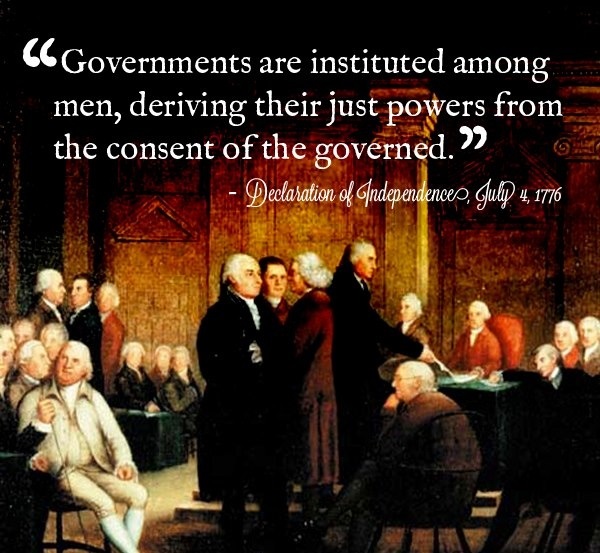In the “Merv Griffin Show” episode of Seinfeld, George hits some pigeons with his car after they didn’t fly away at the last second. “It’s not my fault,” George complains to Jerry. “Don’t we have a deal with the pigeons?”
“Of course we have a deal,” Jerry says. “They get out of the way of our cars; we look the other way on the statue defecation.”
“Right,” George says. “And these pigeons broke the deal!”
The American people have a tacit deal with their government too. The people let the government think it’s in control, as long as it doesn’t get too pushy with the enforcement, and in turn government officials get to make laws and issue proclamations as long as they provide the bare minimum of basic services like roads and adequate schools.
This deal was never better illustrated than during the coronavirus shutdown. Across the country, governors issued stay-home orders weeks after people began staying home, ordered businesses closed after most people stopped patronizing them, and took control of public health measures as best they could.
But after a while, it became apparent that the governors and the public had different ideas about the terms of the deal.
The people were told that the emergency orders were necessary to “flatten the curve” and ensure that hospitals were not overwhelmed with critical COVID-19 patients. But after the curve was flattened, the orders remained. Governors switched to talking about the importance of reducing deaths and preventing a second wave, but people stopped paying attention to the stay-home orders, which had rarely been enforced anyway. They noticed that the goalposts had moved, and they weren’t OK with that.
Then, on Memorial Day, a Minneapolis police officer was caught on video pressing the life out of George Floyd as other officers stood by.
The nation erupted in protest. Rioters followed the protesters. Public spaces filled with thousands of tightly packed, shouting people doing everything state governors had told, and often ordered, Americans not do.
The unspoken message of the protests (and the riots) was clear: You are not in control; we are. (The spoken message was a different one, though it incorporated the unspoken.)
People on social media kept asking why protesters were allowed to congregate in the midst of a pandemic governed by stay-home orders and limits on crowd sizes. Those people misunderstood the deal. The government wasn’t allowing the protests. The people had been allowing the stay-home orders.
Since May 25, the people have been letting their governments know that stay-home orders and crowd size mandates were no longer tenable and would no longer be obeyed.
Government in the United States has a lot of power, delegated to it by the people. But both constitutionally and culturally, the people are sovereign and the people are the ultimate source of the government’s power and legitimacy. When they en masse decide they’re no longer going to take orders or accept the legitimacy of a particular agency’s authority, there’s little the government can do. As much as government officials flatter themselves that they have power and authority, it’s nothing compared to the power and authority held by the people.
This is why Black Lives Matter protesters press so urgently for others to join them. They understand the power of the majority. They understand that a small protest can be ignored, but a massive one will motivate elected representatives to action.
One might wonder, then, why businesses are not following their customers and opening up in defiance of state orders. That’s simple. Businesses are licensed and regulated by the state and local governments. Government holds tremendous power over them. Individuals have constitutionally protected rights to assemble, speak, and protest, but there is no corresponding right to run a restaurant or hotel. Licenses and permits are permission from the government to be open. Lose that, and you lose your livelihood.
If one wants to see the effect government power can have on human behavior, one just has to observe the differences in individual vs. business responses to government shutdown orders. Businesses, over which governments exert tremendous control, have largely complied. Individuals, over whom government has less firm control, have been defiant.
Andrew Cline is the Executive Director of the Josiah Bartlett Center for Public Policy
